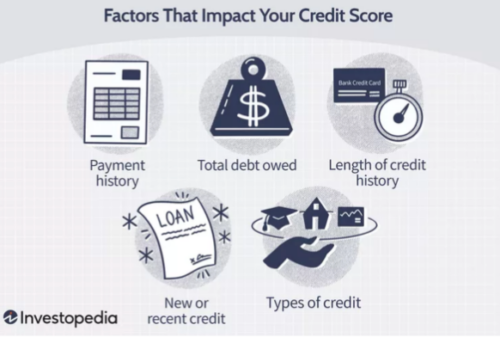What is Credit
Credit typically refers to an agreement between you and a financial institution or lender (such as a bank or credit union) when you borrow money and agree to pay it back, often with interest. For example, if you bought a car and are paying for the car overtime, you are using credit to own the car while continuing to make payments for the full amount.
Having a “good” credit score (usually 700 and higher) is critical for your financial health. It can help with securing housing, certain types of employment, and getting the best rates on loans and other financial products.
Free Credit Reports
It’s a best practice to check your credit report regularly, so that you know what your credit is, as well as what appears on your credit reports.
Go to annualcreditreport.com to get copies of your credit reports.
There are three major credit reporting agencies: Equifax, Experian and TransUnion. Although much of the information on each report may be similar, there are some differences in what each report may contain, so it’s best to get credit reports from all three agencies.
Credit Scores
Credit scores use credit scoring systems to figure out if a prospective borrower is a “good risk” to lend to. For example, before getting an auto loan or a home mortgage loan, the bank or credit union will review your credit score to understand your credit history and financial health before deciding if they want to lend money to you. Individuals with low credit scores have a harder time getting loans, or when they do, the terms on the loans are not ideal (such as high interest rates to pay back).
Our credit scores change over time depending on our financial situations and how we are using credit or not.
You may have heard of FICO or VantageScore. These are the two main credit scoring models. You may have a different credit score from each company, so it’s advised to check both.
To get your credit scores:
- Some financial institutions provide these to their customers for free, so first check with your bank or credit union as they might be able to provide you with your credit score on the spot via online banking or the mobile app
- You can also use Credit Karma (just be aware that they may advertise products to you, such as a new credit card. Don’t sign up for products that you don’t want or need)

If you find that you have a lower credit score than you want, it’s okay! The good news is that you can work to improve your credit score by:
- Paying bills on time
- Paying down any debts
- Not taking on additional credit
- Removing items from your credit reports that should no longer be on there
Raising your credit score may seem daunting, especially because the financial system can be so challenging to understand. And remember, having a low credit score doesn’t necessarily mean that you have made any mistakes. Individuals with less access to family/generational wealth may have needed to borrow money just to make ends meet. But don’t worry – you can do it! Work with a trusted financial counselor who can help you make a plan for raising your credit score safely over time. It’s recommended to use nonprofit credit repair services or work with a trusted financial advisor that comes recommended. Try to avoid for profit credit repair services that charge monthly fees or have other costs based on financial products that they require you to use to utilize their services.
Work with Consumer Financial Protection Bureau trusted groups such as the Financial Counseling Association of America or the National Foundation for Credit Counseling. You can also view a list of approved credit counselors through the U.S. Department of Justice.
If you have a healthy credit score, congratulations!
Credit Tips for Individuals without Social Security Numbers
Individuals without Social Security Numbers (SSNs) still have options to build credit, and to check their credit scores. Check with your bank or credit union to learn what credit-building accounts are available without a SSN. Beware of predatory lending such as payday loans and loans with high interest rates and fees.
If you don’t have a SSN and want to learn about your options for checking your credit score, visit the three major credit reporting agencies, Experian, Equifax, and Transunion, as well as annualcreditreport.com.
To learn about options to apply for an ITIN (Individual Taxpayer Identification Number), you can learn more here.

